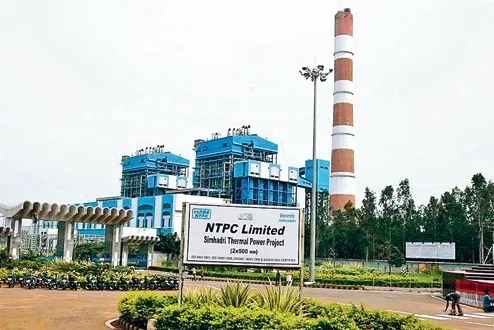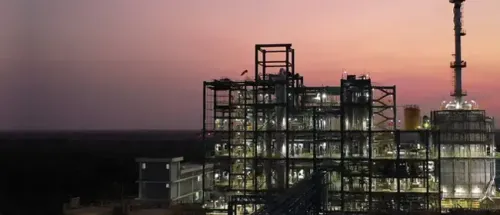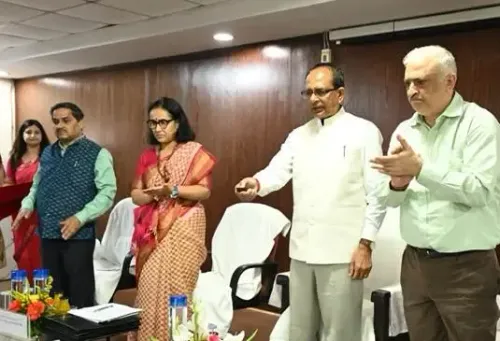Is NTPC Green Energy Ltd Collaborating for Battery Storage Projects in Bihar?

Synopsis
Key Takeaways
- NTPC Green Energy Ltd collaborates with BSPGCL for sustainable energy.
- Projects will include renewable energy and battery storage solutions.
- Agreement supports India's carbon reduction goals.
- Significant job creation anticipated for local communities.
- NTPC aims for 60 GW of renewable capacity by 2032.
New Delhi, July 27 (NationPress) - The government-owned NTPC Green Energy Ltd has formalized a Memorandum of Understanding (MoU) with the Bihar State Power Generation Company Limited (BSPGCL) to establish renewable energy and battery energy storage projects (BESS) in Bihar, aligning with the Centre's initiative to minimize the carbon footprint across the nation.
The agreement was executed by Sarit Maheswari, the CEO of NGEL, and Abdesh Kumar Singh, Director Technical of BSPGCL, in the presence of Bijendra Prasad Yadav, Bihar's Minister of Energy, Planning, and Development, along with other high-ranking officials from the state.
This MoU follows NTPC Green Energy Ltd's recent success in securing a 1,000 MW solar PV power project auction from the Uttar Pradesh Power Corporation Limited last month, where the company entered into a Power Purchase Agreement (PPA) at a rate of Rs 2.56 per kWh.
Earlier this month, the Cabinet Committee on Economic Affairs raised NTPC Limited’s financial capabilities from Rs 7,500 crore to Rs 20,000 crore for expanding its Renewable Energy capacity.
As a premier power utility in India, NTPC aims to increase its Renewable Energy Capacity by 60 GW by 2032, aiding the nation in achieving its broader goal of reaching 'Net Zero' emissions by 2070.
The augmented financial authority granted to NTPC and NGEL is expected to expedite the development of renewable initiatives across India. This strategy will be crucial in fortifying the power infrastructure while guaranteeing reliable, continuous electricity access nationwide, as stated by an official announcement.
Such renewable energy projects will also create direct and indirect job opportunities for locals during both the construction and operational phases. This initiative will support local suppliers, enterprises, and MSMEs, fostering entrepreneurship and promoting employment and socio-economic advancement in the country, as per the statement.
India has marked a significant milestone in its energy transition journey, achieving 50 percent of its installed electricity capacity from non-fossil fuel sources—five years ahead of its target set under the Nationally Determined Contributions to the Paris Agreement. The nation aims to attain 500 GW of non-fossil energy capacity by 2030.









